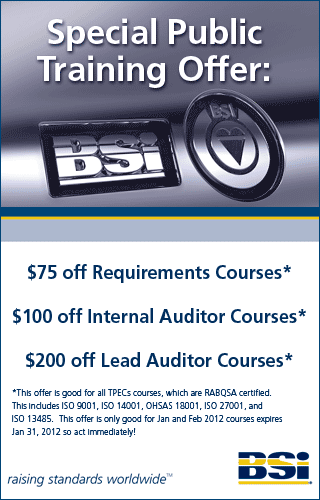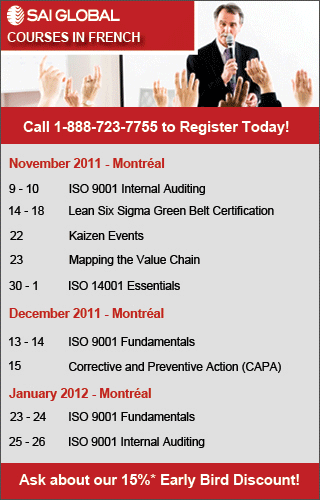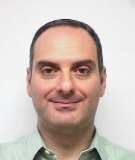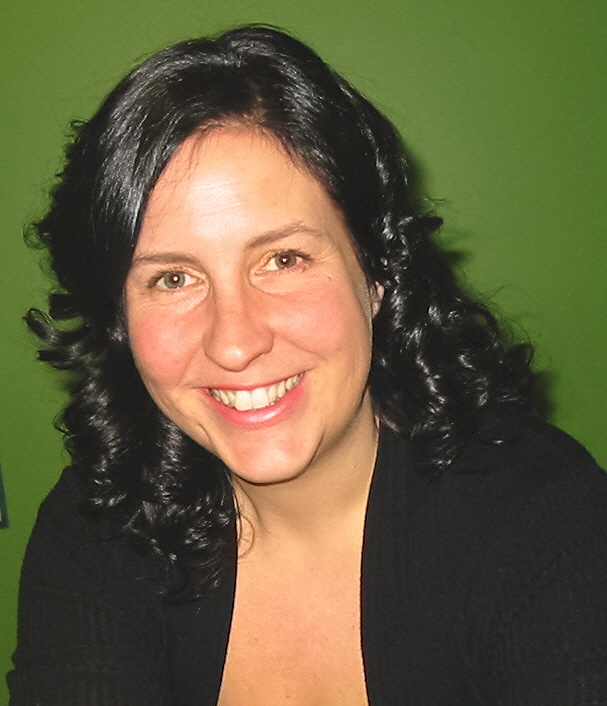|
Section
0401 |
|
|
January
2012 (Volume
62 - Issue 1) |
|
Our
objective: To increase awareness,
interest, and involvement in Section activities and quality-related
subjects. |
| 10 - Welcome to our New Members | ||
| 17 - Unemployed Member Dues | ||
| 6 - Voice Of The Customer | 12 - Other ASQ Events | 18 - Feedback/Advertising Rates |
1.
Next
Event
Date Wednesday, January 25, 2012 Time 6:00 PM Place Sheraton Montreal Airport Hotel
12505 Cote de Liesse
Dorval, Quebec H9P 1B7 (MAP - DIRECTIONS)
The
Importance
of
Cultural Settings for Continuous Improvements in Quality
**************************************
Come
out on January 25th, and hear from this panel of experienced
individuals on the importance they've seen regarding cultural and
regional settings, and the impact it can have on Quality and Continuous
Improvement efforts. This ASQ "Panel" event will be facilitated by Raymond Dyer (Voice of the Customer Chair).
|
2.
Ad
/
Publicité
|
||||||||||||||||||||||
|
The evening with our five experienced panelists will start shortly after supper, sometime around 7 PM. In the first hour or so, panelists will be invited to briefly present themselves and then take turns answering a few questions based on their experience. Questions currently proposed are: (1) Can you give us examples of differences you've seen/experienced in terms of Quality maturity (knowledge, commitment, etc.) between different countries/regions/cultures? (2) Would you act differently to encourage/secure Continuous Improvement between different countries/regions/cultures? If so, why? The second part of the evening will consist of an open Q&A session, where questions will be asked from audience and the facilitator will try to ensure an organized dialog so as to allow as many questions from the floor and participation from the panelists as possible. If time permits, the facilitator will ask the panelists to leave the audience with one key message about the importance of cultural settings for Continuous Improvements in Quality. Note: The opinions and comments made from the panelists will reflect their individual perspectives and are intended to productively share their experiences in this area. They will not reflect any official ASQ positions, nor will they be intended to offend anyone. We are all well aware that there are sensitivities to be respected and we will strive to do so while still allowing for open discussion and exchange. OUR PANELISTS Diego is a Principal Supplier Development Professional at Medtronic AF Solutions and Total Quality Management lecturer at McGill University. For over fifteen years, he has lead continuous improvement activities with Medical Device, Aerospace, Energy and Automotive suppliers located in North and South America, Europe and Southeast Asia. He has contributed to the development of the vendor base for three new global vehicle programs in Argentina, Brazil and Malaysia, achieving a reject level of 45 PPM. He has also led improvement teams in Mexico, US, UK and Canada for aerospace suppliers delivering over $0.85M in annual non-quality cost savings. Diego holds a Master’s degree in Manufacturing Management from McGill University and has been certified as Six Sigma Black Belt by Rolls-Royce. 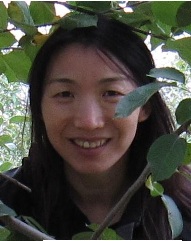 Hong
Ping (Holly) Zhao Hong
Ping (Holly) ZhaoHolly is a senior member of the American Society for Quality (ASQ) and has been working in quality for more than fifteen years in the aerospace sector. She is six-sigma black belt trained and certified by GEAE. Currently she works as a quality analyst for Bombardier Aerospace. Born in China, she came to Canada as a technologic immigrant. She got her Bachelor's and Master's degree in Metal Corrosion & Protection from the Beijing University of Aeronautic and Astronautic / Northwestern Polytechnic University. In China, she worked with an aero-engine company where she participated in continuous improvement programs of quality to satisfy the needs of customers such as GEAE (US), Pratt & Whitney (US & Canada), Rolls-Royce (UK), and Snecma (France). In Canada, she has worked for different companies with product/service categories varying from castings, aircraft engine, aero-components and structures, and special processes to aircrafts. Along with her passions in quality and experiences in views of customers and suppliers, she has acquired a unique perspective on the Importance of Cultural Settings for Continuous Improvements in Quality. 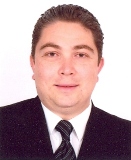 Khaled
Khattab Khaled
KhattabKhaled holds a Master’s degree in Quality Management, he is a Certified Assessor for the European Foundation for Quality Management (EFQM) Excellence Model, a Certified Auditor for QMS ISO 9001 and EMS ISO 14001. He is a Senior member of the American Society for Quality (ASQ) and a member of the Canadian Public Sector Quality Association. He previously worked for HEC Montreal, Shell; the United States Agency for International Development, and the Government of Dubai. Currently, he is working for GP Strategies Corporation at Pratt & Whitney Canada. 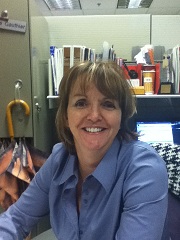 Louise
Gauthier Louise
GauthierLouise studied in electronics, inventory management, and Human Resources and had a varied background before starting in Quality: Operation Line Manager, Functional Test Manager, Supply & Demand, HR Advisor in Industrial Relations & Organizational Development, and Supply Chain Operations Product Line Manager. Then, in 1999, she started getting involved with Nortel's TL 9000 Quality Management System (QMS) including internal Quality audits, business acquisition and transfer QMS projects, facilitating customer audits, and, since the last 7 years, has been in the role of Supplier Quality Account Management involving audits on and continuous improvement efforts with contract manufacturers in Mexico, India, Israel, Thailand, China, US, and Canada.  Sukhvinder
Singh Jutla Sukhvinder
Singh JutlaSukhvinder has a unique perspective on the Importance of Cultural Settings for Continuous Improvements in Quality. He is of Indian heritage but was born and raised in Kenya. He lived in England for 13 years and got his Bachelor's degree in Electrical and Electronic Engineering from the University of Leeds. He worked for 3 years in England and has been working in Canada for 35 years in the Aerospace and Electronics industries. Currently he is a Manufacturing Analyst for Pratt and Whitney Canada. He has worked with companies in the UK, Holland, Germany, France, US, Mexico, Philippines, Singapore, and China, as a Customer, Supplier, and Auditor. ****************************************************
Cost:
ASQ
Members ($40),
Non-Members ($50)
Supper
and
Parking are included.
Bring
your business cards and be ready to
network. To
register for any event or for more information on events please
contact:
Sukhvinder Jutla Tel: (450) 647-8092 E-mail: Sukhvinder.Jutla@pwc.ca or Mitchell Daudier Tel: (450) 647-7830 E-mail: treasurer@asqmontreal.qc.ca 3. The Editor's Corner
I’d like to begin by wishing all ASQ members a happy and prosperous 2012. I sincerely hope that the New Year brings to you everything in the highest quality. Thank you as well for continuing to read this Newsletter that is created for you to read, and hopefully get something positive out of. This month, we have a brand new interview with our Voice of the Customer Chair Raymond Dyer. Raymond discusses a very timely topic: networking and the impact that the new social media tools have had on it. As someone who maintains his own blog and uses Facebook and LinkedIn, I found the interview to be quite thought-provoking: hopefully you will as well. As well, after many attempts at encouraging members to submit articles for publication in this Newsletter, success has finally arrived! Check out the section “Contributed Quality Articles” for 2 articles from a local Quality professional on (i) key performance indicators (something I deal with quite a bit with my job as well), and (ii) adapting to a new company when you come from overseas to work. So please, if you think you have something you’d like to contribute, forward it to myself directly for consideration. And finally, speaking of working in different parts of the world, our event this month will deal with how cultural settings play a role in the Quality field and continuous improvement. This will be a panel discussion with speakers who have all had the opportunity to work outside of Canada, and as a result, have had to learn and deal firsthand with working in different quality environments and mindsets. Looking forward to seeing you there! |
|||||||||||||||||||||||
4.
A Word
from
your Section Chair
We, in the leadership team, have been talking about it for a few years now… A PANEL! Organising a panel needs a lot of research, great panelists and of course a talented facilitator. Our program team did it and will present this panel about the importance of cultural settings on Quality in a few days. Raymond Dyer, who is well known in our Section, will be conducting this event for you. Don’t miss it. |
|||||||||||||||||||||||
5.
Had
You Come
to the
Last Event
By
Richard V. On, CQA, ASQ Senior Member
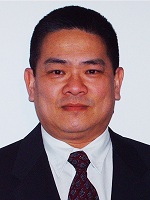 Had you come . . . What Makes People Perform? In
the November ASQ 0401 Newsletter, the introduction to this presentation
said:
1. If you work in the quality field, you would notice that quality depends on the structures set up by the organization, and also on the contribution of individuals. 2. On a personal level, you may have been in situations when the results you produced were different from expectations. 3. The challenge put forth to the audience is that if one good idea taken away may move you towards reaching that goal. 4. Did you know that as of today, Amazon lists 7400 paperback and 5800 hardcover titles with the words “people performance”? What if you can improve your own performance, or that of supervisors, peers or subordinates? Like most of you, I too am in the Quality field, mostly in the Auditing side of it. I came to the presentation armed with expectation to learn some tricks on how to fire up people to better perform. Instead, the presentation opened up a new dimension totally unknown to me. I am glad I came to Eric’s presentation. You will agree if you allow me to share my notes. On the subject of Performance: >WIKIPEDIA defines Performance Management (PM) as activities that ensure that goals are consistently being met in an effective and efficient manner (that include organization, department, employee, and processes to build a product or service, as well as many other areas). >Dr. Aubrey Daniels in the late 1970s saw it as the technology for managing behavior and results. >Richard Boyatzis in 1982 stated that the effective performance of a job can be assessed by the attainment of objective, appropriate execution of procedures and processes. Ferdinand Fournies in explaining "Why Employees Don’t Do What They’re Supposed to Do and What to Do About", pointed out the five critical management systems:
Some common signs that employees don’t know what you want them to do include:
Know that these employees are not stupid; they are not uncaring; they are not unmotivated. They just don't know what you want them to do. The proposed intervention when faced with “Why Employees Don’t Do What They’re Supposed to Do and What to Do About” is Coaching, since Executive Coaching based in business reality delivers a Return on Investment (ROI) of nearly six times the initial cost of coaching (according to a recent Manchester Consulting Survey of over 100 senior executives who have participated in coaching programs):
The table below best illustrates the relationships of the coach, mentor, confidant, adviser, leader and trainer. 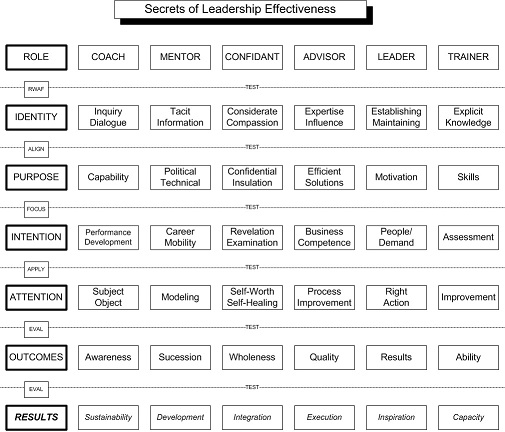 The International Coaching Federation exists, and qualifies professional coaches. The competencies of the professional coach in ICF encompasses:
You will be glad to know that:
The following list shows the various types of assessments used by the professional coaches:
Eric Stern summed it up nicely: the responsibility of the employee is to provide the best of his judgement. The performance of the employee is the responsibility of the manager. Eric Stern, CQA, senior member, publicity co-chair, developmental coach and consultant at Expertech CMSC, expressing his own opinions. ericst@iseffective.com For
networking with local
quality professionals explore these groups: http://tech.groups.yahoo.com/group/Quality_Montreal/ http://www.linkedin.com/groups?gid=90170
|
|||||||||||||||||||||||
6. Voice of the Customer
To come, or not to come, to our ASQ events, that is the question! This time, we'll be looking at two more pieces of feedback from last year's section member survey. As you'll recall, 56 out of 302 members started the survey but only 39 finished it, 3 of which were sent in manually. One of the questions asked was "What motivates you to come to section events?". I broke down the 33 responses into common themes. The lessons learned from the 50 data points (yes, one response often held more than one theme) yielded the following results: Networking (14), Quality/interest of topic/event/speaker (13), Learning/Knowledge (8), Sharing practical experience (4), Professional development/Job related (4), Don't usually attend (3), Curiosity (2), Certification points (1), and Location (1). Very interesting feedback indeed. While we're always concerned about elements like location, time held, etc., these factors came out very secondary as motivators to the true value of networking, the quality of the speaker and topic, and the opportunity to learn and share experiences. The accompanying question asked was "What prevents/discourages you from coming to section events?". I broke down the 33 responses into common themes as well. The lesson learned from the 44 data points yielded the following results: Location/distance (9), Time (9), Work obligations (5), Cost (4), Other interest/activities (4), Travel (4), Nothing (3), Short notice (2), Topic not pertinent/of interest (2), Family Obligations (1), and Sick (1). Here is a little more granularity on two of the main demotivators. Location/distance (9) includes South Shore (2), Traffic (2), Weather, Downtown, 100 km. Time (9) includes Wednesday Evening (3). Sadly, the two top demotivators are parameters our section Leadership team has typically found to be the best overall choice, i.e. Wednesday evenings in the West Island, e.g. near the Dorval Airport. However, there is something to learn from this given there is increasing activity from members in the South Shore and we do have a Student Branch that operates mostly downtown that we could perhaps leverage for our events. I'm sharing this input with you, our members, as well as our Leadership Team. Sometimes we think we are restricted but, at the very least, we'll talk about what our options might be. It's usually in the reflection that we discover new avenues. Thanks again for the feedback. 7. The
Interview Corner
By Kostya
Polinkevych, CSQE, ASQ Senior MemberAt
last, we have another interview! After publishing our first
one in the June 2011 Newsletter, we are proud to present to you an
interview with our Voice of the Customer Chair, Mr. Raymond Dyer.
******************************************
Efficient Networking
How to Network and Succeed with your Career Effectively (An interview with Raymond Dyer) In order to get the job done, we need to network. For us to maintain our social life, and to educate ourselves, we need to network as well. Our life is much easier now – we have many various communication means that facilitate networking. Moreover, our world today is overloaded with a huge variety of all those means. Computer-based technologies offer VoIP, Skype, Yahoo Messenger and many other technologies that facilitate data transmission. Not only new technologies were developed, but also new social networks were born and are actively exploited by people of all ages: LinkedIn, Twitter, Facebook. People can network through forums and blogs. Considering all of this, we sometimes ask ourselves these questions: How to not get lost in this forest? How to use new technologies efficiently? Do my kids spend too much time socializing with their friends over social networks? How to benefit from networking and not spend all my life at the computer? That is why we are having this interview today. It is specifically devoted to networking; its meaning for improving communications, for helping people to understand each other, to accommodate them to achieve quality in the most efficient way. 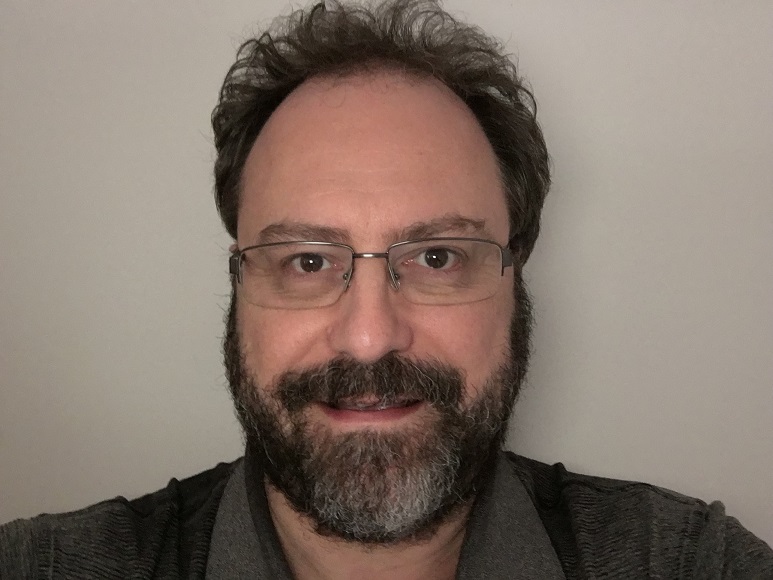 Kostya: Could you, please, tell our readers about yourself? Raymond: I am a bilingual manager. I have a British father and a French-Canadian mother. I did most of my studies in English, so I am a little bit more comfortable in English. But I am very proud of the fact that I can speak both languages. I call myself a “Manager”. I did an MBA. I have a Bachelor degree in science, in Biochemistry, but I am very proud of my Master’s degree in Business Administration. For me it makes sense to go into Quality when you understand Business. I worked for very complex companies. Right now I am working in the telecommunication industry, like Nortel, and now Ciena. The challenges include complex supply chains and demanding quality requirements. Before that, I worked with hazardous chemicals like Chlor Alkali chemicals. You buy a lot of salt, electricity, use a lot of water and make chlorine and caustic or sodium hydroxide. You then sell it to paper companies and water treatment companies. Chlorine does not get sold easily. You have to use rail tank cars. It was an industry that was very conservative and had a high degree of analysis of risk and understanding of quality. I actually started working for the Chlor Alkali business to get them their ISO 9002 certification. That was why I was hired on board for them. Oddly enough I was not hired because I knew the ISO standard. I was hired because I knew how to deal with people. So right there was already the networking, which I enjoyed doing amongst quality professionals. It started there because of my ability to talk to people, to convince them, to understand them, to learn from them, to teach them, and to help them. Before that I worked in explosives. I had just graduated from university in Biochemistry and this explosives company was looking for a chemist because things kept blowing up and they wanted to understand what was wrong with their explosives. So when I was working in the explosive’s industry, I ended up working in Product Development, developing new products and new ways of making them, like pyrotechnics and explosives. I worked in Product Management; helping executives make business decisions in terms of what you will keep, what you will not sell anymore, how you do your pricing strategy, what your forecasts are, the methods to do business in terms of forecasts and sales, production rates, what the inventory will look like, etc. Then I ended up being in charge of the Purchasing Department. Now, even when I was back in Product Development, Product Management, and Purchasing, I ended up getting involved with TQM (Total Quality Management) training. That was when I started to appreciate quality, and why I started to learn it from different people and friends that I began to make in the quality arena. I gave “Quality Education System” courses, based on Crosby’s philosophy, at Brownsburg. Afterwards, I went to ISO 9001 and bigger and better things. I supervised employees, so I know the principles behind good management of employees, training, setting objectives, etc. I have taught in quality at HEC. I have done various projects as I was developing my career, so even when I was in charge of quality I would do some IT related projects. Also, I was a “Networker” developed over time. That was not something I was born with, I developed it with my friends and the right environment. Kostya: Is it true that you learned, based on your vast experience, the importance of communication between people at the job, sometimes in dangerous environments where people work with explosives, that communication is extremely important? Raymond: Communication is extremely important, even if you are not in quality. When you are doing product development, if you want to sell an idea, a new way of developing the product is that you have to have an ability to communicate. Communication right from the start was important. I found out about the networking later on. The whole thing about developing a network of friends, people interested, that’s when I started to join the ASQ. That was in my second job. When I was a Quality Manager of a Chlor Alkali (Chemicals) company, my boss said “you are going to participate in a quality association, you are going to get out there, and you are going to make a difference”. So it was beyond communicating at that point. It was talking to people, learning from people, influencing people, staying in touch with people, making a difference, proposing things, working hard, and making things happen. Therefore the whole networking aspect really started to kick-off when I joined ASQ. However, communication, as a simple business skill, was very important right from the start and necessary in quality. People do not want to hear about quality unless they understand what is in it for them, what is good for them, and what impact does it have on them. That is why communication is extremely important. Kostya: Can you tell us how communication and networking are related? Raymond: I think communication is one element of networking. You need to be able to communicate to a network. If you do not, people do not know who you are, and they do not know about you. However, networking is a lot more than just communications. Kostya: Why did you become interested in networking related to the quality society? Raymond: After I moved from my first job into my second job, I became a Quality Manager in the business of Chlor Alkali Chemicals. My mandate was to get them into ISO 9002 back then and my boss said that he wanted me to be a part of a Quality Association because they were used to dealing with the associations to get information to influence change, to set standards, all kinds of things. So he said: “I do not want you to be just a member, you have to participate, you have to make a difference, you have to get known, you have to represent your company, you have to influence what is going to happen in terms of the standards and how things get done.” So I looked at different associations back then, mainly AQQ and ASQ. ASQ was my natural choice because it was international, it had much wider appeal, and the nice thing was that after that meeting, I went to a leadership meeting and presented myself and said “I want to get involved”. People who we both know – Sam Weissfelner, David Tozer, Inteaz Ali, and a lot of other people were there and said “Welcome aboard!” and that was when the networking really happened. Kostya: What are the general types of networking (related to society of quality) which can be identified today? Raymond: The way I see networking is not necessarily an official model. People network for different reasons. Sadly, we see many new members at ASQ events because they are looking for a job. Networking is a good thing to do when you are looking for a job, but it should not be the only reason why you are doing it. It should not be the reason why you start doing it. You should have started doing it before that. But it is one of the reasons why you network. You are looking for a job and you are trying to see if someone of your industry, someone of your colleagues or friends can give you a hand. That is what I call “career networking”. You are looking for another opportunity, for another form of work, and you hope that people may help you out. ASQ is good for it. Our LinkedIn group is very good for it. There are other forms of networking. One of them, is to be recognized and to influence change; standards get set, laws get made, municipal, provincial, federal decisions and rules are agreed on because there is political networking that goes on. So political networking is another form of networking - to influence change. Another form of networking is what I call “educational”. It is either to teach or to learn. Either you can be learning from people or you can teach them. Like for example, “Gestion des Operations et de la Logistic” that happened at HEC. For me, that is a form of educational networking where you have to meet other people and share things that you know so other people can benefit from it, or ask questions so you listen. Lastly, for me, the most important form of networking is “social networking”. Social networking does not only mean Facebook and Internet, it means going out there, meeting people, making friends, and just being a good member of society. For me it is not an official model, but those are the four main types of networking – social, educational, political and career as well. Kostya: Which form do you believe is the most important for quality? Raymond: For quality they all are very important. I would say that the one that we use most often at ASQ is educational. Our events are meant to show and explain things to people. There is a political element. We do try to influence change; I do not know to what degree we do that much of it for our local section. But, for example, we did set up and encourage a student section and the student chapter that had to be created. People like Eric Stern, David Tozer, Inteaz Ali and myself spent time with the universities trying to encourage them to get involved in quality; so the political form of networking also took place there. Career networking is very important. Norm Dickinson and I, we followed through as “Internet liaison”. Whenever anybody has a job offer, we put it on the website. Now it is even better. With LinkedIn we have a whole bunch of recruiters. We say “join the group, the recruiters are there”. If you are looking for something, they have something, and here is where there are better chances for you to get work. But if you want to be theoretical about it, probably the most important form is educational; the training and leaning. Kostya: Who and how networking can benefit? Raymond: Anybody can benefit from it. The only main rule I tell people is that if you are going to network just to have something, you do not have the right mindset. You need to go in with the spirit of giving. With the thought that you are going to help people, you are going to talk, give them leads, give them information, and share contacts. One day when you do need it, they will be there for you. When we gave Bernard Doiron a prize after being a section chair for a couple of years, he said that everything he put into this quality section and networking he received many times over. The point is that you give, you help, and the benefits will come to you. But if you do it just to see if you can get something for yourself, you will not benefit from it. Kostya: We all are very busy. Does the networking that you learned help people to save time? Does it help to communicate efficiently despite of their lack of time? And keep connected? Raymond: I think it does. I recently had a lunch with a young lady who had a very good executive profile. She was not necessarily involved in quality; she was involved in managing as a manager or a site director. The reason why she and I had lunch was that one of my quality contacts who I have met frequently at ASQ events told her: “Are you looking for a job right now? Talk to this guy”. Through LinkedIn we all get connected. I gave her some help in terms of some people to contact, and a couple of them already told me “yes, we will try to get her to talk to the right people in the organization”. I did this, I spent time, I invested time to talk to this girl, to have lunch. What did it give me? The other quality person that was a common friend, thanked me, and, if I need help, she will help me. Another thing is that now I have information that would help me if I need it. So, it is time to help other people. I have information now and I have at least two people who are thankful to me for what I did. I have asked many of our leadership team colleagues on often occasions if they could help me. François Pageau is an excellent example. He has made some excellent presentations and helped us to clarify some statistical questions I was experiencing in my own company. I was arguing a certain factor with other colleagues, and François came to my help in terms of he convinced me that I was wrong. But still, it was information. I understood what I was doing wrong. Therefore, now I can do the right thing for the company. When you exercise, you get to be healthier – there is the benefit. The only thing is you have to do it intelligently. You cannot spend the whole time in front of the computer updating your LinkedIn account, because you can spend hours and hours looking at the conversations that happened at LinkedIn. I do not have the time for all of that. I have to pick and choose my group; I have to pick and choose the people I work with. You cannot spend all the time for everybody, there is a limit as how much you can do. Kostya: Which means of communication can you recommend to our readers? Raymond: There are too many of them now – Twitter, Facebook, forums, blogs etc.? You know, everybody has their own style. What I like to do a lot and what works for me is what we call “instant messaging”. I have my Yahoo instant messaging and my Skype instant messaging. Now, I have a couple of ASQ colleagues with whom I talk. Not often, but once in a while when I have a quick question and I see that Khaled Khattab or Eric Stern are on-line, I send them a quick question. It is very useful with my colleagues as well. It gets a faster reaction than e-mail, and you do not need to spend as much time as you do on the phone. On the phone you have longer conversations then when you ask a quick question by IM. It is like what adolescents do when they “text”. I do not text. It is too slow on my phone, I do not have the phone of the right technology, and it is not my style. I have no interest in what they call “Twitter”, and I do not have much time for blogs. Also, a discussion on LinkedIn looks like a blog; I do not have time for formal blogs. Facebook – I do not have time for it. We, probably, can have more publicity through Facebook, but again, there is no time for it. When it comes to keeping a network of contacts, professional contacts, I like LinkedIn. I am very good on e-mail in terms of corresponding with people and getting in touch. The phone is very important when you need to discuss something that is more sensitive. When there is something that requires a bit of conversation and can take too long to type, sometimes speaking on the phone is the best thing. For example, Norman Dickinson asked me to confirm our executives for a web site so you could have the right names, so it was faster just to pick up the phone and make a call. So you pick and choose the technology or the method that allows you to communicate effectively. If you need to ask questions, clarify and build on something, the phone is the best approach. If it is just a report, sending out information, or sending out a lead, e-mails work well. If you want a lot of people involved in a single conversation when you go through questions, a discussion on LinkedIn works nicely. This is because more people can see it and can add their own grain of salt as you go along. Kostya: Does networking help to do your job faster and better? Raymond: To contact specialists, to look for advice, to save time, to increase the quality of a job? Does it help all other people? Yes, on the whole, with networking you learn tricks, you learn tools from other people; auditing tools from Jean-Pierre Amiel and Inteaz Ali, statistical tools and sampling methods from François Pageau, quality tools from David Tozer. It is not like you use all these tools, but once in a while you can say “That can help me when I come back to work”. One of the tools I actually learned about was during a presentation I was making. I was doing a presentation with Eric Stern on networking, and his part of the presentation talked about LinkedIn which I had not yet used. Now, it is a very powerful tool for me. For office, work, staying in contact with suppliers, ex-colleagues, sometimes, when you go in different directions, they still remember things you would like to recall when you are doing your work. So, definitely, the use of the network helps you as an individual working for your company. Now, the thing is you have to be careful not to spend all your time networking and not getting your job done. So, it can be exaggerated, but there is a “healthy” level of networking you can do that brings value to your company and to your work. Kostya: Can our readers use information on our web site? Can they contact the specialists from our section? Raymond: One of the things I do, for example, when recruiters started getting interested and contacting me about jobs, in LinkedIn or otherwise, is that I tell them right away: “If you are interested in publicizing a quality related job in the area, I will give you a web site for the opportunities for our section 401”. I also tell them to send this information to Norman Dickinson. I give them his email address. I also give them the information on Denis Pronovost from section 404. They do not normally put it on their website, they normally put career opportunities in their newsletter. I also tell them here is the web site for both sections 401 and 404 and of all their executives. So they have a feeling that if they want to look for training, if they are interested in finding out more about a section’s activities etc. they have all the points of contact. So, definitely, anybody I deal with, I always tell them, and not just for Section 401. I always keep 401 as the first one because 401 is the one I mainly work with, but I always give them the same information about 404, saying: “Here is the web site for the association, for different sections, here is the web site that gives you the list of their executives, and here are people you need to contact to find about more about publicizing opportunities in the quality area”. So, definitely part of networking is to talk about the two sections. Kostya: What is your vision of networking in the nearest future? Raymond: Networking over the years has changed. A Large part of this is because of technology. Way back when I started in the early nineties, networking was about events, meals, parties, meeting people, and the way you kept up that network was to meet these people; touch them by phone or writing a letter. Now the technology has changed and also how we do things. Things happen faster. Rather than going to parties and events, we have these social networks like LinkedIn or Facebook, and things like that or web-based activities that you can connect to and meet people, and have conferences. You hear a voice from somebody in Memphis and you develop relationships with someone without even meeting that person. Phone calls can be done like we did a few minutes ago, i.e. voice over IP. One of my friends that was in Malta this summer was going through very difficult times and was able to stay in touch with me through Yahoo – instant messaging, video over IP, so I was able to hear him and see him through my computer screen. Thus, to me, the way of developing networking and continue networking is to develop the ability to see people or hear people from very far away from what technology is giving us. Skype and Yahoo messenger allow us to talk to people for very cheap over the Internet. It does not become such a hassle to pick up a phone; you can do it using a head-set and a computer. We also use emails and blogs to share information now. You can go overboard, you can exaggerate. Some people make good use of Twitter and Facebook and tools like that, but I am not there. Using something like LinkedIn, getting recruiters in a group, staying in touch with a lot of people that I know from the industry and from the quality profession is a really good way of maintaining the network. My vision is that with all these tools we use, we pick and choose the right ones so we do not spend hours that do not add value. A few minutes of staying in touch and communicating with the network of people that we know is the way to go. Kostya: Do you believe that networking helps to bring quality initiatives to our economy, society, improve education? Raymond: I think it does and it has to. However, we are probably not doing it enough. There is a lot of experience around our table when we sit down to talk, and there is still a lot of small and medium companies that have no clue what quality is really about. They have a good concept, they sell, they do things, and they provide service, but the tools to improve? Many do not know about them. They do not know what quality means in terms of how to improve something to get them done properly. It means we still have to go out there, and we have to publicize what quality is all about, we have to get people interested in learning and understanding what quality is all about. So networking is a big part of that. It also means networking not only with quality professionals. We need to get business leaders, business managers, and business owners interested in quality. They need to understand the value of standardized processes, quality tools and methods, and how they can improve the business, how they can get more money out of it, how they can reduce the risk. The networking with all those people can help to promote quality. We have no choice, we are going to keep doing it. ******************************************
Raymond Dyer is a bilingual manager with a vast background in complex industries like Telecommunications, Hazardous Chemicals, and Explosives. He has over 20 years of expertise in Quality Management and also another 10 years in areas of Purchasing, Product Management, and Product Development. Ray has experience with employee supervision, training/teaching, project management, business reporting, PC applications, network management, and working with cross functional groups. He is typically known for his conceptual thinking, leadership, integrity, networking, and team spirit. He has actively volunteered for the ASQ Montreal Section 0401 since 1993, and some time back for his son's daycare administration, and later for his elementary school's governing board and parent committees. While he started off as a very shy and quiet child, he has grown to enjoy being part of networks at work, at school, in the community, and especially in the Quality profession. Ray Dyer was encouraged to join a Quality related association when he took on the mandate as Quality Manager for ICI Forest Products back in 1992. Ray’s boss back then, Dale Brown, made it clear though that Ray had to actively participate, get to know people, influence the Quality profession and environment, help drive positive change, and represent his company with respect and honor. Lots of this they now call professional networking. Ray joined ASQ in 1993 and immediately started joining and participating on Montreal Section 0401 Leadership Team meetings and activities. Raymond Dyer holds ASQ CMQ/OE & CQA certifications. . As a reminder: if any readers would like to obtain additional information, please provide us your feedback to: voc@asqmontreal.qc.ca 8.
Contributed Quality Articles
By Shlomit
Shteyer, Verint Systems Canada Inc.On top of having a new interview in this issue of the Newsletter, we have 2 articles that have been contributed by ASQ Montreal member Schlomit Shteyer of Verint Systems Canada Inc. Click on the appropriate links to access PDF copies of the articles. 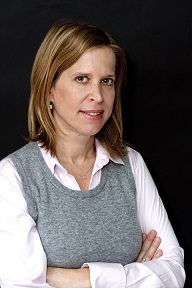 Article #1: How to Become Captain KPI. An article that talks about how to properly implement the use of Key Performance Indicators within a company. Article #2: Doing a Quality Management Position Abroad. A timely article (given our January event subject matter) on adapting into not only a new company, but a new country and working culture. *****************************************************
If you what to contribute a Quality-related article to the Newsletter, please do not hesitate: forward it directly to the Editor for consideration. 9.
2011-12 Planned Events
Date, time, and location will be confirmed as we progress into the year. Most events are planned for Wednesday evenings and are held at the Sheraton Montreal Airport Hotel. Watch the Newsletter and our web site for further details.
Date Event Supply Chain Quality |
|||||||||||||||||||||||
|
To register for any event of for more information on events please contact: Sukhvinder Jutla at (450) 647-8092 or e-mail at Sukhvinder.Jutla@pwc.ca.
|
|||||||||||||||||||||||
10.
Welcome
to our New Members
November
2011
Francois Benoit Nazim Chowdhury Melissa Courtois Gillies Demers Sofia Diouri Alexandre Hudon Brigitte Lamarre Francois Lambin Andrew D. Morrell Kayra Morrison Ghizlaine Mourafik Martin Routhier Arya Shafiee Elena Truia Viola Vakili Ronny Vandeweyer |
|||||||||||||||||||||||
11.
Sustaining
Members
ASQ Montreal Section thanks our Sustaining (Site) Members: |
|||||||||||||||||||||||
12. Other
ASQ
Events
|
|||||||||||||||||||||||
13. ASQ NewsCoping
with Cancer – A Quality for Life™ Video Story Don’t Miss the
March Certification Deadline Keynote
Speakers for 2012 Lean and Six Sigma Conference World
Quality Month Recap |
|||||||||||||||||||||||
14.
ASQ
Montreal Section Education Program 2011-2012
By
David
Tozer,
Ph.D., ASQ CQE and SSBB, Education & Audit Chair Having ASQ certification gives you an edge in the market and can significantly increase your income. ASQ Certification often leads to higher paying employment. The money invested in education and certification increases chances of finding employment quickly in the down sizing environment we live in. People who take the section sponsored refresher courses, and spend at least twice as much time as spent in the classroom on self study, have an 80%, or better, chance of passing the examination on the first attempt. Certified Quality Engineer Topics include: quality concepts, cost of quality, human resources, team formation and group dynamics, inspection, metrology, sampling, reliability, quality standards, quality audit, statistics, design of experiments, process improvement, liability, and modern management methods for improving quality. Certified Six Sigma Black Belt Topics include: quality concepts, cost of quality, enterprise wide deployment, business process management, project management, team formation and group dynamics, define, measure, analyze, improve, control, lean enterprise, statistics, design of experiments, and design for six sigma. Certified Six Sigma Green Belt Topics include: quality concepts, cost of quality, enterprise wide deployment, business process management, project management, team formation and group dynamics, define, measure, analyze, improve, control, and statistics. Certified Manager of Quality/Organizational Excellence Topics include: quality concepts, quality planning, customer focus, quality standards, project management, cost of quality, team formation and group dynamics, human resources and improvement.
Certified
Quality Auditor Topics
include: quality concepts,
team
formation and group dynamics, management responsibility, audit
objectives, audit preparation, audit conduct, audit reporting,
sampling, and basic statistics.
Certified Quality Inspector Topics include: quality concepts, team formation and group dynamics, geometry, metrology, reading drawings, mechanical processes, statistical process control, inspection, and sampling. Calendar and Registration Form Questions? In house courses, etc.: David Tozer: (514) 694-2830, davidtozer@qualitiqua.com
|
|||||||||||||||||||||||
15.
Executive
Committee Meetings & Officers
Section Executive
Committee
(Leadership Team) Meetings are held at different locations, starting at
6 PM. The next regular meeting is tentatively scheduled for : February
1, 2012 Consult the List of Your Executive
for
2011-12 here |
|||||||||||||||||||||||
16. Upgrade Your Membership to Senior MemberGAIN RECOGNITION . . . ADVANCE TO SENIOR MEMBERWhy not demonstrate your professional growth and accomplishments in the quality profession by becoming an ASQ Senior Member. You will receive recognition from ASQ, additional benefits, and the opportunity of being nominated to the grade of Fellow Member, if you qualify. Go onto your profile at www.asq.org to complete the application on-line. You can also download the application from www.asq.org. Or you may phone 1-800-248-1946 and request that an application be mailed to you. Apply today either by phone or on-line and get the recognition and benefits you deserve. 17.
Unemployed Member Dues
Unemployed ASQ members receive a discount on their membership dues based on consecutive years of membership.
Eligibility Criteria
Benefits
NOTE: The following links require that you be logged into your account before you try to activate them. Download the 2011/2012 Unemployment
Program
Application (July 2011–June 2012 Membership Groups) (DOC, 101 KB) |
|||||||||||||||||||||||
18.
Feedback
Please send us your comments about the ASQ Montreal Section 0401 E-Newsletter (topics, layout, length, etc.). Do you want to contribute an article (English or French) or a good idea? Contact us by e-mail. |
|
||||||||||||||||||||||
Pass
it on
We invite you to forward this Newsletter to friends and colleagues who may be interested. |
|||||||||||||||||||||||
|
The
ASQ
Montreal
Section 0401 Newsletter is prepared by and published for its members. How to
Opt Out. This
e-mail
is being sent in the course of normal Montreal Section
business
to the e-mail address of record. We are not responsible for forwarded
e-mails. If you no longer wish to receive e-mail communications from
the Montreal Section (your section) of ASQ, please visit your ASQ
account to unsubscribe or
reply to this message, indicating Opt
Out in the
e-mail body
and in the title. |
|||||||||||||||||||||||

